Revisiting London Korean Film Festival 2017
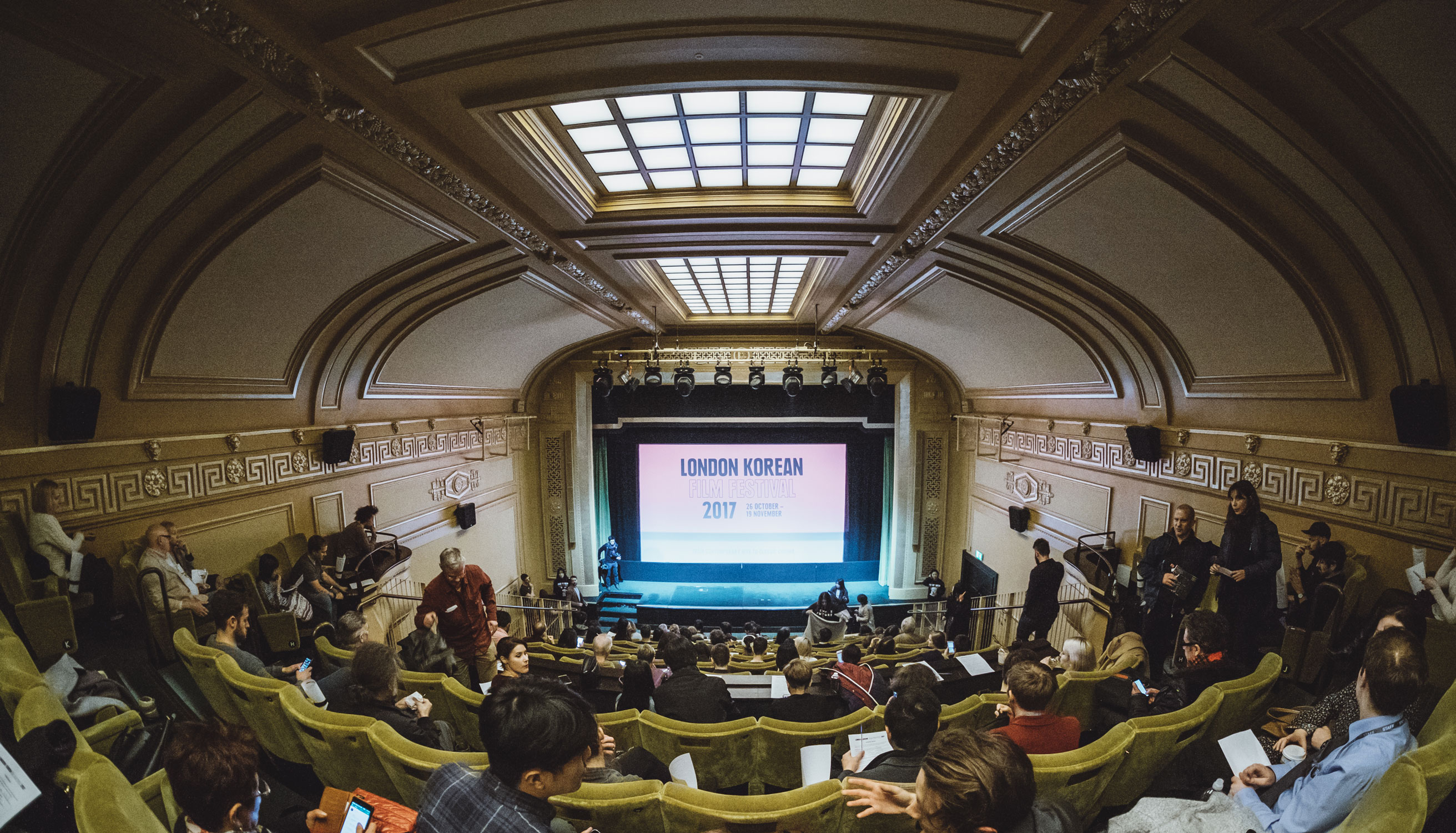
I used to watch a lot of Korean movies back in my university time. I liked the sophistications of movies like “Old Boy” and light-heartedness of the commercial ones with their very pure and innocent takes on romance. I’m not quite sure why but there was a point that I just stopped watching them apart from seeing those that made the news somehow.
This year I had the opportunity to connect with the Korean cinema again through London Korean Film Festival. Now in their 12th year and matured, I was pleasantly surprised by the festival’s structure and the depth of genres offered. I ended up watching 5 movies, regretting not being able to see more, and all turned out to be very good. I’m gonna write a few spoiler free lines of each and do encourage you to seek them out.
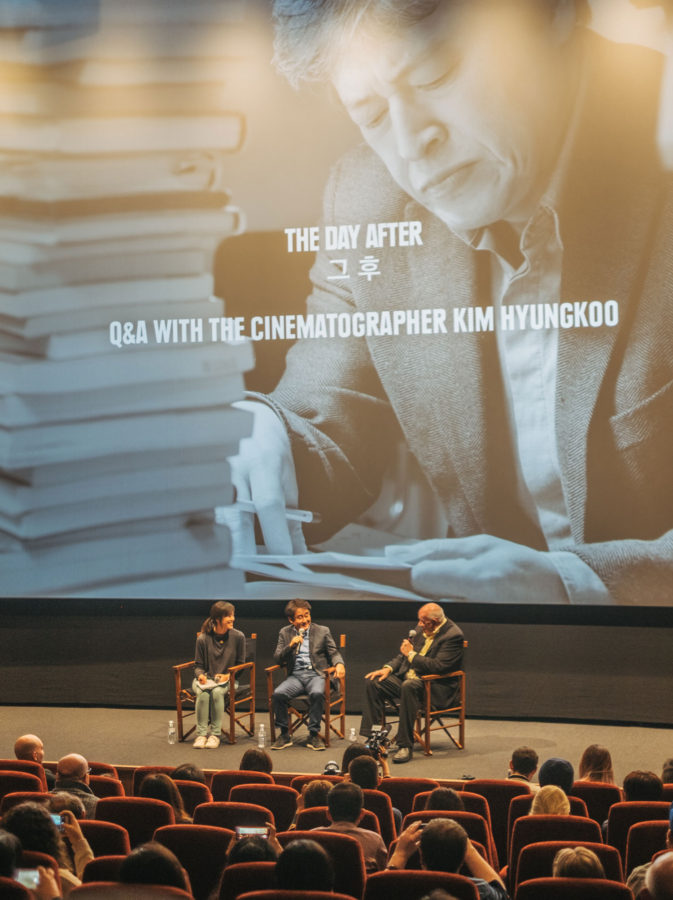
The Day after
Coming from a director who’s apparently against the norms of film making, unfolds a story that feels eerily real and more of an non-linear observation of a piece of life. Hong Sangoo’s “The Day After” tells a very organic story of a man in emotional crises that disturbs three women’s life in the process. Weakened by his confusion, unhappiness and lack of resolve, he’s going through life like a ghostly figure finding momentarily solace in youth & lust.
According to the cinematographer Kim HyungKoo in a Q&A session after the screening, the director provides the script on every day of shooting! Something that bothered him the first time they worked together but later grew to like and respected as he understood the benefits of being more spontaneous and the creativity and curiosity generated by it. I think it showed in the film how natural and organic everything felt as opposed to rehearsed and practised. The actors should also get credit for their flawless portrayal of their characters and making them grounded in the reality of the story.
Being unhappily married is perhaps something many people feel and struggle to battle with but the movie goes beyond that by suggesting how time, and search for meaning can affect our behaviour and you don’t need to merely be a passenger in your own journey. I did feel the cinematography a little odd at times with very erratic zooms that felt like a failed attempt in replicating a more handheld documentary style camera despite the cinematographer saying that the director liked that. I thought black and white was a good choice for this film as it mainly revolved around long dialogues and the emotional states of the characters.
The Day After [그 후] | 2017. Directed by Hong Sang-soo , starring Kwon Haehyo, Kim Minhee, Kim Saebyuk, Cert 18 , 92 mins.
Merry Christmas Mr Mo
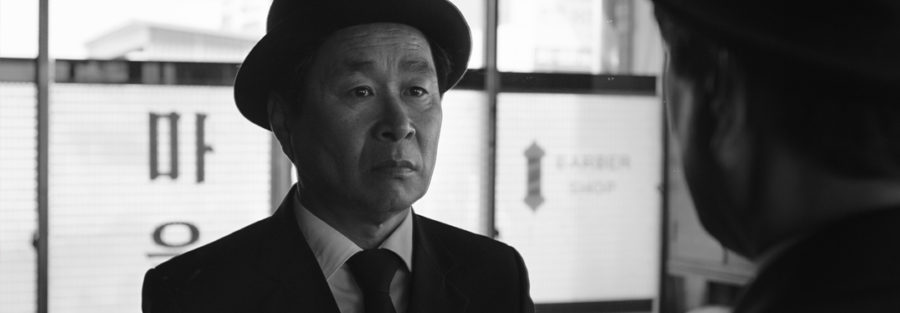
A feature debut by Lim Dae-Hyung, “Merry Christmas Mr Mo” is such a beautiful movie. Again in black and white but for different reasons from “The Day After”, it is on one level an homage to the older days of American cinema as well as Chaplin’s era of slapstick comedies, and on a different one a simple story of life, death and our interactions with each other.
Overall an upbeat story, it slowly peals away on the secrets of the protagonist seemingly straightforward life while keeping the viewer intrigued throughout. I loved all the acting in this film from the main three and all the side characters. So many little and subtle looks and nodes that added a lot of depth to them, specially Gi Ju-bong’s Mr Mo and Go Won-Hee in the role of his son’s girlfriend Yewon . This movie reminded me of why I love movies and cinema again, a medium that’s saturated by superhero and actions films nowadays.
Merry Christmas Mr Mo [메리 크리스마스 미스터 모] | 2016, Directed by Lim Dae-hyung , starring Gi Ju-bong, Oh Jung-hwan, Go Won-hee. Cert 12A, 101 mins
The Dream
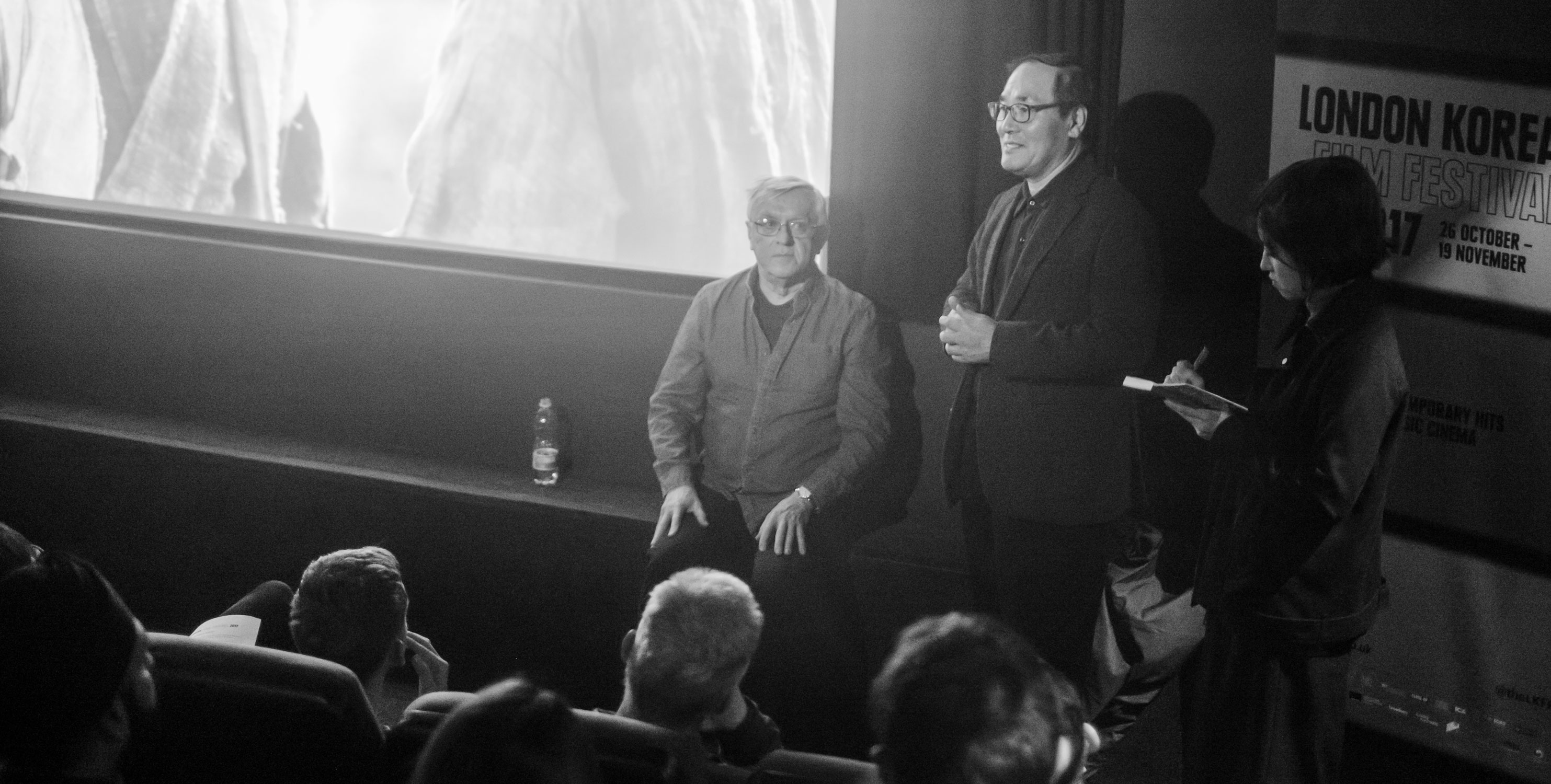
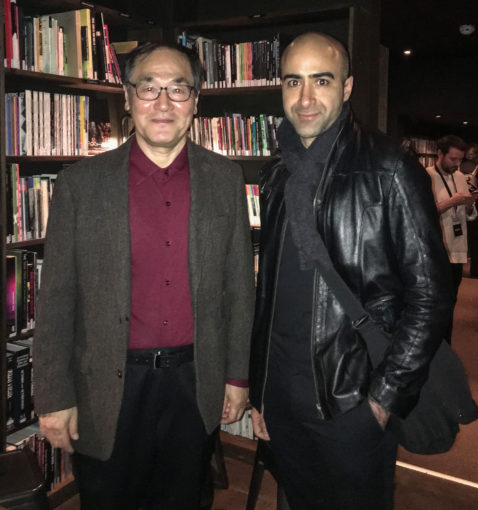
A beautifully told story of a monk who falls in love, and the ugly side of the human nature. The title of the movie is a spoiler that you will find out after watching it! According to the director Bae Chang-ho in the Q&A afterwards “this is not a dream! Something that only the older audiences will understand”.
The Dream‘s film’s cinematography blow me away! The dynamic set lighting, use of natural light and very interesting dolly and zoom work made it look ahead of its time and quiet mesmerising. The director Bae Chang Ho said they shot in in a year to get full four seasons and he tried to use light as an expressionist tool. It looked simply amazing and masterfully framed and shot worthy only of a big screen viewing.
Sadly unsuccessfully commercially when released, The Dream is one of the most memorable movies I have ever seen prompting me to look into the director’s other films and more creations of Korean cinema in the 90s.
The Dream [꿈] |1990, Directed by Bae Chang-ho , starring Ahn Sung-ki, Hwang Cine. Cert 18, 93 mins
Non fiction diary
I was curious to see a film from a different genre and documentary seemed like a good way of discovering another side of Korean cinema and culture. Jung Yoon-suk is one of the upcoming documentary makers who’s feature debut was selected for the festival. Before the screening of the movie they showed a couple of shorts, two of which were his student projects. They were interesting but not enough in my opinion and I was wondering why they were showing them. However, during watching the feature they did provide a little sub-context for some of themes and I was glad to have seen them.
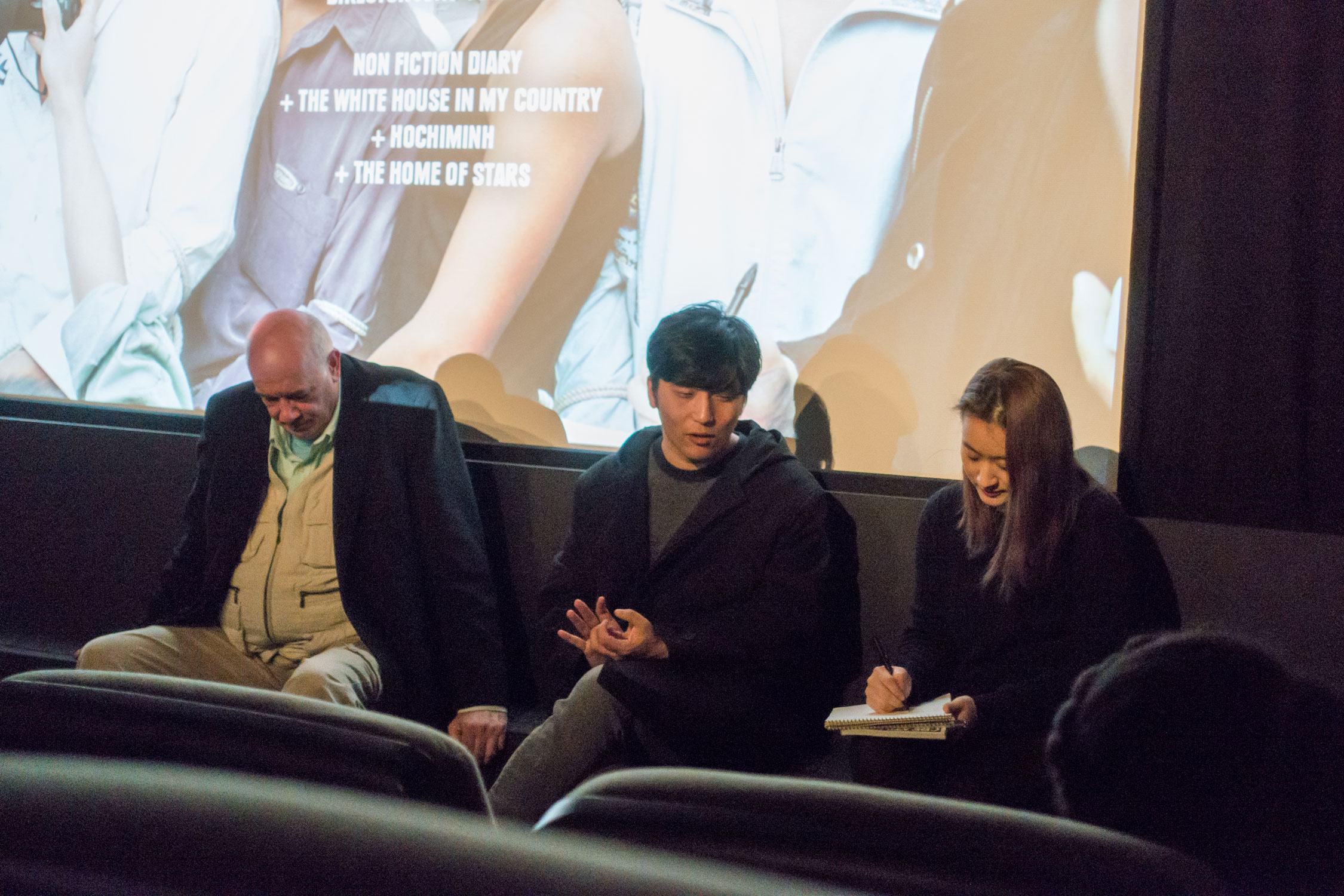
“Non fiction Diary” revisits the social and political changes taking place in 1990s, after the downfall of the military junta in 1988 and the beginning of capitalism in South Korea. The film uses two center pieces to examine the changes that the Korean society was going through during that period. The arrest of a gang of youth, known as the Jijon Clan (“Supreme Gangsters”), who were a group of young men from poor rural parts of the country responsible for the brutal murder of five victims they had identified as being rich. The other piece was about the Seongsu Bridge collapse in Seoul killing 32 people and Sampoong department store collapse, killing 502 and injuring nearly a thousand people. Investigation in both case revealed using sub standard materials and lack of proper inspection due to budget cuts. This film is a look back at a country in spiral after rushing into open markets and getting a taste of capitalism.
While heavily political, the director said for him this was more of a history visit: “The past is not just the past and keeps coming back. We need to understand it as if the present cannot be changed then the future threatens to be the same as the past.” A very gripping watch and I saw a part of Korean history that I didn’t now anything about. It is indeed important to understand the past. I asked him in the Q&A afterwards that what he made of the current political climate in South Korea and he said sometimes he sees things changing only to discover nothing actually changes in terms of human rights and politics! speaking a like a true artist and never settled. Funny enough the festival’s advisor Tony Rayns in this catergory disagreed with him and said the fact that we can screen your movie here in the UK in a festival backed by Korean cultural centre which essentially a government entity means things have changed and for the better.
Non fiction Diary [논픽션 다이어리] | 2013, Directed by Jung Yoon-suk , starring Ko Byung-chun, O Hu-geun, Jung Hyung-bok. Cert 15, 93 mins
The First Lap
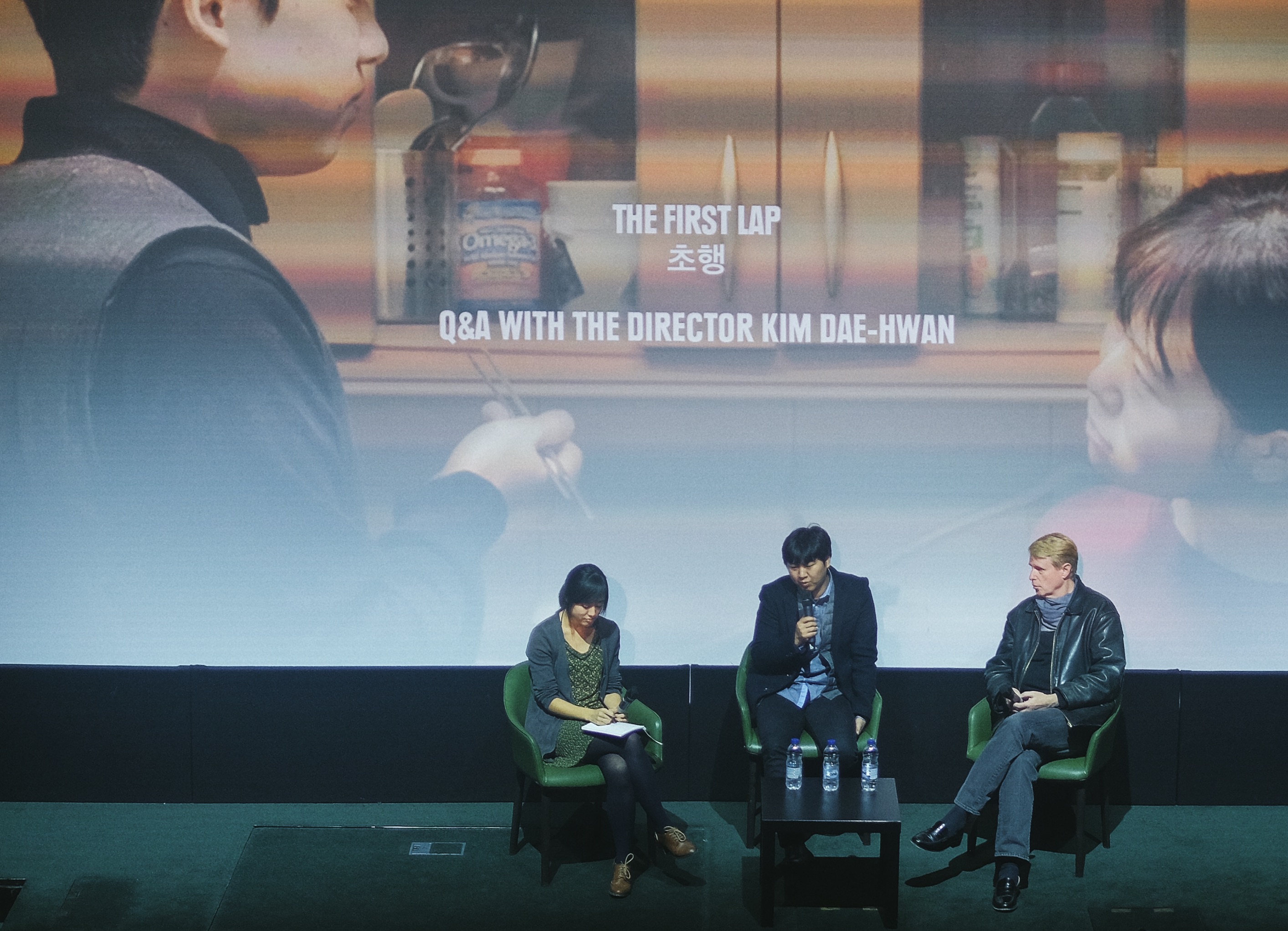
It’s hard to believe this was only the second feature for the director Kim Dae-hwan as it was such a confident and natural film. Similar to “The Day After” what struck me the most was how natural the acting felt. This is the story of a couple who has to face the expectations of society and their families while wrestling with their own uncertainties. I loved the film. So simple yet so powerful. I don’t think it’s a spoiler to reveal an interesting part of the story;
Ji-young, the female protagonist, is late that month and they were wondering if she’s pregnant. There is a scene where the couple are dining, the food from their favourite take-out place, but suddenly hear a baby cry. They both rush to attend to the baby. I asked the director what he was trying to say by that and he said “It’s a dream and also showing the anxiety of them having a child and also needing to move out” as they were about to relocate due to the increasing rent prices in Soul. When watching the movie that scene comes out of nowhere as we still don’t even know if Ji-young is pregnant let alone having a child! The story moves on as if this scene never happened and I found this rather odd placement of a dream scene a very interesting of breaking the flow of a linear story line to something that observed and reflected back on itself as it proceeds.
A lot of scenes were improvised and the director gave actors a lot of flexibility to portray their characters the way they saw them and that added a lot to the natural feeling of the work. For one of the scenes apparently they just carried on talking for 45 minutes of which only around 8 minutes made the cut! It could be a difficult way of managing a movie but very rewarding when there’s a good chemistry and the actors got into the mind-set of the characters created by the story.
The First Lap [초행] | 2017. Directed by Kim Dae-hwan , starring Cho Hyun-chul, Kim Saebyuk, Cert 12A , 101 mins.
* **
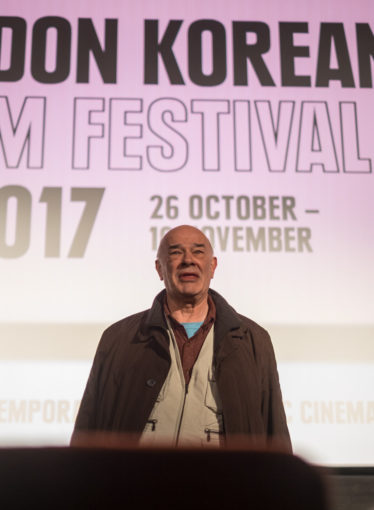
Each movie was presented by one of the festival advisors in that genre and they all felt well informed and gave excellent introductions. I particulary enjoyed Tony Rayns who was looking after the indie category.
London’s Korean film festival was amongst one of the best I’ve attended and Korean Cultural Centre UK should be very proud of this achievement. I look forward to discover more Korean films until they return in 2018.
